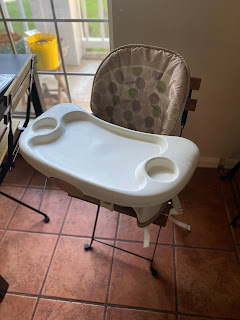some people would rather die than think.
my father-in-law has a saying: "some people would rather die than think." lately i have realized how true this is, even of my own self.
it's so much easier to just accept what culture is telling us. to push back on it, and think through why you believe differently, and to actually live differently takes a lot of energy and work. why do we chase what we chase? why do we follow the prescription given to us?
all of these questions have been rolling around in my brain, but the things i've asked myself that it'd be so much easier not to ask? those are things particular to my life as a consumer.
there are things i believe to my very core. but if i really, truly believe them, they insist that i do things differently than i've done before. they insist things must change.
one such belief is that we are all - all - imago Dei. we are all created in the image of God. and if that's really what i believe then one of the implications of that is that i should not support companies who exploit their employees. i think of this specifically when it comes to clothes and shoes. sweatshops. should i really be excited about buying such cheap clothes if that means that my brothers and sisters on the other side of the world are working in terrible conditions for pennies? not to mention the resources needed to make so many clothes year in and year out in our world of throwaway fashion.
believe me, i have shopped this way for years. i enjoy shopping. i pay loose attention to what's going on in the fashion world, and i try to find an inexpensive way to replicate the parts i like.
my closet is jam-packed full of clothes even after doing a couple large clean-outs in the past year.
honestly, thinking through the potential implications of my choices have kind of made me want to ignore said implications, and pretend there aren't people on the other side of the world who work in such terrible conditions. i want to pretend that by paying $7 for a shirt that somehow still leaves space for the company to take a cut off of the top, and the person who made it to get paid fairly for their work.
there are things i'm willing to pay more for, but how much of the money i pay for them actually makes it back to the people making the clothes? how much of it makes it back to the people making the shoes? and how much do i need these things to begin with?
i've thought a lot lately about these things. i've thought a lot about how wasteful i am - how much i throw away, or don't use of what i already have. despite the fact that i know "more is better" and "more will make me happy" are not actually true statements, i don't live like i know they're false.
honestly, i don't even want to write this - i don't want to put it out there, because even though i know it's true, and has haunted me for a few months now; if i put it out there, there's no going back.
there are no more flippant shopping trips where i can just buy something for a couple bucks on a whim without knowing anything about the company that makes the clothes.
the implications of it go on and on... because even if the clothes were made ethically, were the fabrics sourced ethically? where did the materials come from? and it extends to other areas of life too. what about the food we eat? what about the amount of trash we generate?
across the board, how are we doing when it comes to our dominion over the earth? God gave us dominion over the earth so we could care for it, not exploit it.
i don't have all of this figured out, but i've been chewing on it for a while. a lot of us are ignorant. and frankly, it's easier to be ignorant with something like this. i'd argue that it's not better, but it is certainly easier. because really thinking about these things will probably require us to change.
and change is hard. it's hard to live differently than everyone else around you. it's tough to push back against the broader culture. to think through the ramifications of our beliefs.
believe me, i don't have all of this anywhere close to figured out. one thing i have done is buy more secondhand since there are so many rarely or never worn castoffs out there, and thanks to the internet there are more ways than ever to find them. i haven't been buying much though, and i know i need to spend more time really thinking through the changes i need to make.
i read a couple books that have made me think through different aspects of the broader problem. one of them focused primarily on our health, and caring for the earth. the other focused on the effects our actions have against our fellow man, and how we care for the earth. both gave practical suggestions about how to institute changes.
here they are, in case you'd like to be challenged in a whole lot of ways:
and please, please, please reach out with any thoughts or suggestions you have. i'd love to hear what you think about these ideas. i'll let you know more about what i think and find as i continue trying to figure it out.
one thing i do know for sure - making small changes for the better is better than making no changes at all.
it's so much easier to just accept what culture is telling us. to push back on it, and think through why you believe differently, and to actually live differently takes a lot of energy and work. why do we chase what we chase? why do we follow the prescription given to us?
all of these questions have been rolling around in my brain, but the things i've asked myself that it'd be so much easier not to ask? those are things particular to my life as a consumer.
there are things i believe to my very core. but if i really, truly believe them, they insist that i do things differently than i've done before. they insist things must change.
 |
| {image via pinterest from cotton bureau} |
one such belief is that we are all - all - imago Dei. we are all created in the image of God. and if that's really what i believe then one of the implications of that is that i should not support companies who exploit their employees. i think of this specifically when it comes to clothes and shoes. sweatshops. should i really be excited about buying such cheap clothes if that means that my brothers and sisters on the other side of the world are working in terrible conditions for pennies? not to mention the resources needed to make so many clothes year in and year out in our world of throwaway fashion.
believe me, i have shopped this way for years. i enjoy shopping. i pay loose attention to what's going on in the fashion world, and i try to find an inexpensive way to replicate the parts i like.
my closet is jam-packed full of clothes even after doing a couple large clean-outs in the past year.
honestly, thinking through the potential implications of my choices have kind of made me want to ignore said implications, and pretend there aren't people on the other side of the world who work in such terrible conditions. i want to pretend that by paying $7 for a shirt that somehow still leaves space for the company to take a cut off of the top, and the person who made it to get paid fairly for their work.
there are things i'm willing to pay more for, but how much of the money i pay for them actually makes it back to the people making the clothes? how much of it makes it back to the people making the shoes? and how much do i need these things to begin with?
i've thought a lot lately about these things. i've thought a lot about how wasteful i am - how much i throw away, or don't use of what i already have. despite the fact that i know "more is better" and "more will make me happy" are not actually true statements, i don't live like i know they're false.
honestly, i don't even want to write this - i don't want to put it out there, because even though i know it's true, and has haunted me for a few months now; if i put it out there, there's no going back.
there are no more flippant shopping trips where i can just buy something for a couple bucks on a whim without knowing anything about the company that makes the clothes.
the implications of it go on and on... because even if the clothes were made ethically, were the fabrics sourced ethically? where did the materials come from? and it extends to other areas of life too. what about the food we eat? what about the amount of trash we generate?
across the board, how are we doing when it comes to our dominion over the earth? God gave us dominion over the earth so we could care for it, not exploit it.
i don't have all of this figured out, but i've been chewing on it for a while. a lot of us are ignorant. and frankly, it's easier to be ignorant with something like this. i'd argue that it's not better, but it is certainly easier. because really thinking about these things will probably require us to change.
and change is hard. it's hard to live differently than everyone else around you. it's tough to push back against the broader culture. to think through the ramifications of our beliefs.
believe me, i don't have all of this anywhere close to figured out. one thing i have done is buy more secondhand since there are so many rarely or never worn castoffs out there, and thanks to the internet there are more ways than ever to find them. i haven't been buying much though, and i know i need to spend more time really thinking through the changes i need to make.
i read a couple books that have made me think through different aspects of the broader problem. one of them focused primarily on our health, and caring for the earth. the other focused on the effects our actions have against our fellow man, and how we care for the earth. both gave practical suggestions about how to institute changes.
here they are, in case you'd like to be challenged in a whole lot of ways:
 |
| {image via amazon} |
 |
| {image via amazon} |
and please, please, please reach out with any thoughts or suggestions you have. i'd love to hear what you think about these ideas. i'll let you know more about what i think and find as i continue trying to figure it out.
one thing i do know for sure - making small changes for the better is better than making no changes at all.
xoxo






Comments
Post a Comment